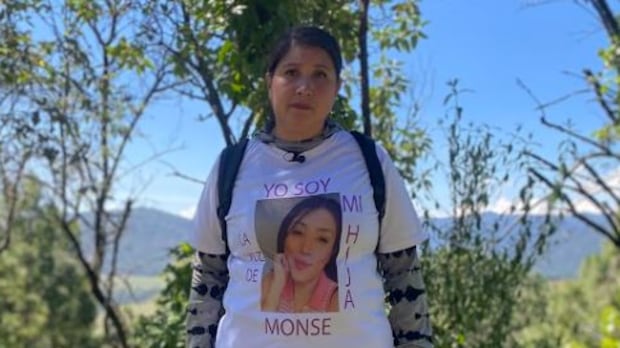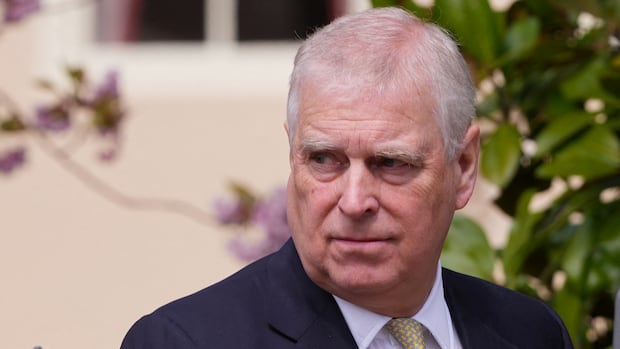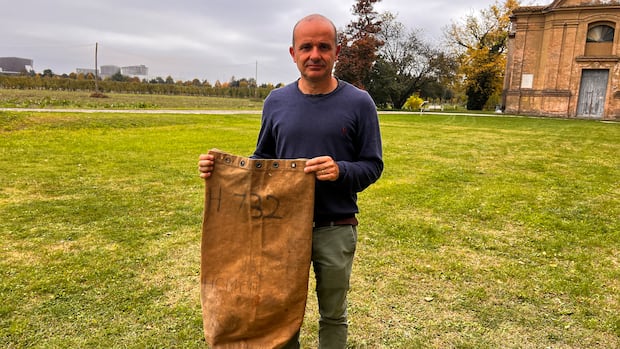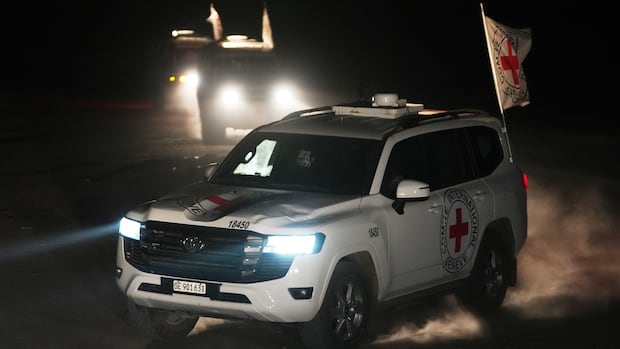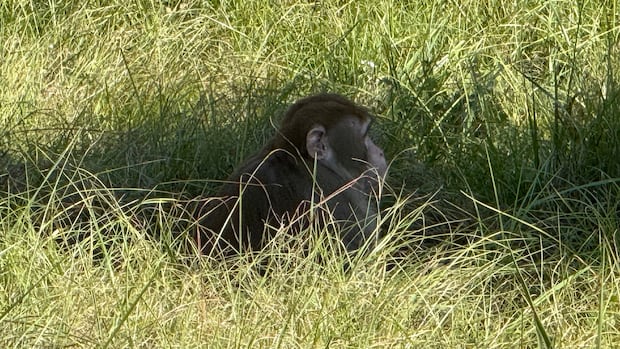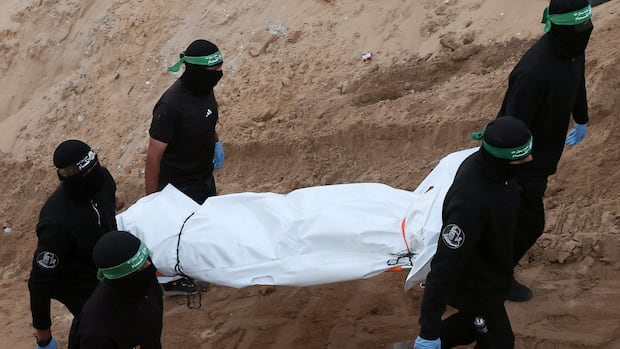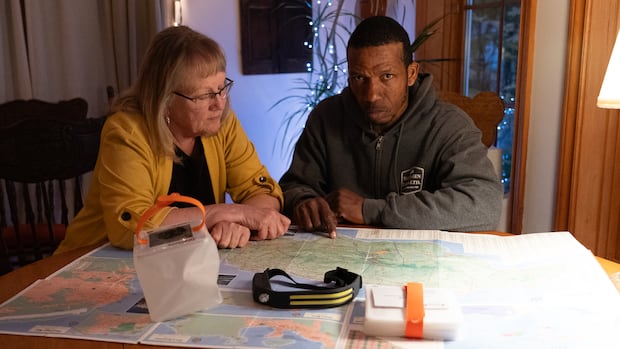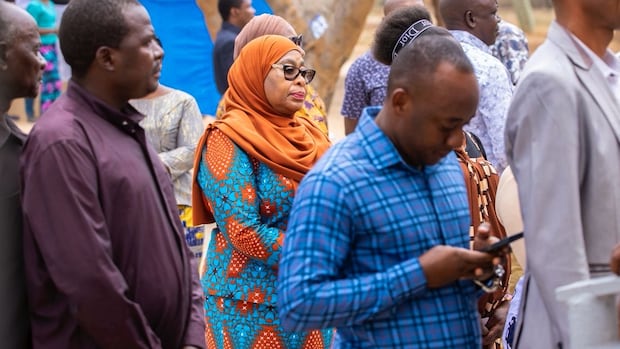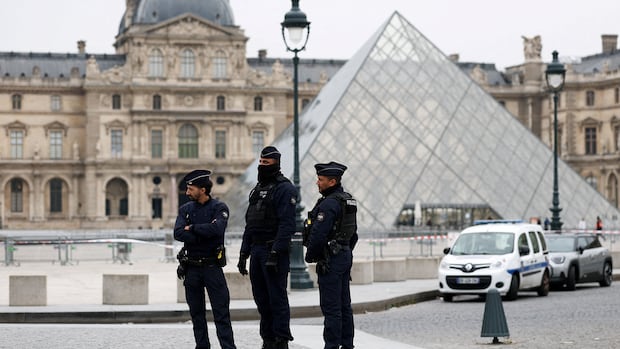Of the many issues currently threatening to derail a Gaza ceasefire already hanging by a thread, the exchange of the dead is surely one of the grimmest.
The deal calls for the bodies of 28 hostages held by Hamas to be returned to Israel in exchange for the remains of 360 alleged Gazan combatants.
Israel accuses Hamas of dragging its heels and deliberately withholding some bodies in a bid to retain leverage, while Hamas blames delays on the massive devastation wrought by Israeli firepower.
And doctors in Gaza say some of the Palestinian bodies they’ve received from Israel have arrived with numbers, not names, and that many bear signs of torture, some with their hands bound.
The practice of withholding the dead lives on both sides of the Israeli-Hamas war, a cruel bargaining tactic not exclusive to this latest Gaza conflict.
WATCH | Withholding the dead as a bargain tactic:Human rights organizations say Israel has been stockpiling the bodies of hundreds of alleged Palestinian militants for years, often burying them in a so-called cemetery of numbers — something Palestinians consider a form of collective punishment. For The National, CBC’s Margaret Evans goes to the region to learn more about why it happens, and meets people fighting for change. ‘Cemeteries of numbers’Human rights organizations say Israel has stockpiled the bodies of hundreds of alleged Palestinian militants as potential bargaining chips for decades, burying them in secret grave sites known as “cemeteries of numbers.”
“We have documents to prove that there are 735 dead bodies, missing bodies, in the cemetery of numbers and in refrigerators in Israeli morgues,” said Hussein Shejaeya who leads a campaign for their return by the Jerusalem Legal Aid and Human Rights Centre.
Palestinians call them cemeteries of numbers because the graves are marked only by wooden or metal sticks bearing a number.
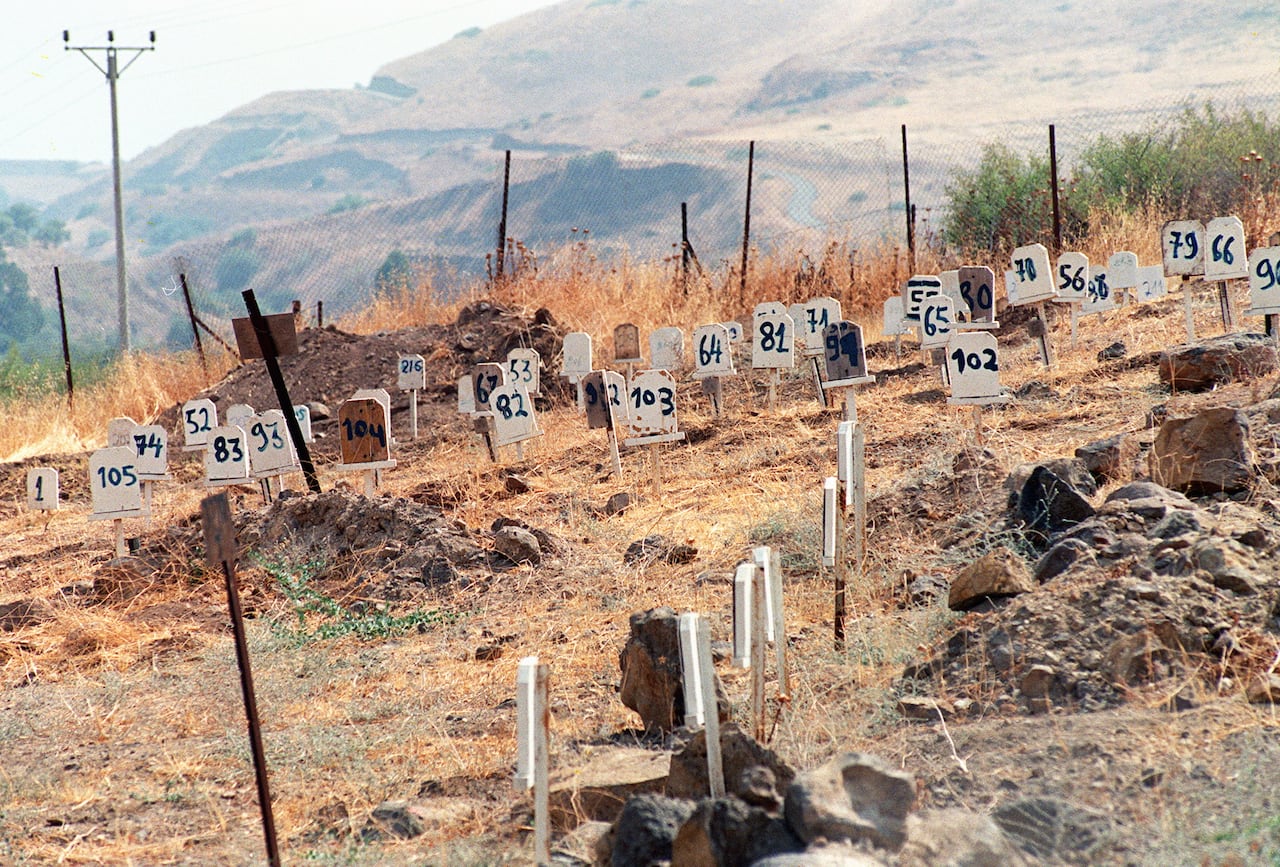 A cemetery in northern Israel, seen Sept. 14, 1989, that holds the remains of alleged Palestinian combatants killed by the Israeli army. The graves are identified only by numbers. (Menahem Kahana/AFP/Getty Images)
A cemetery in northern Israel, seen Sept. 14, 1989, that holds the remains of alleged Palestinian combatants killed by the Israeli army. The graves are identified only by numbers. (Menahem Kahana/AFP/Getty Images)Shejaeya says Israel held the bodies of 405 Palestinians from Israel, Gaza and the Occupied Territories before the Hamas attacks on Oct. 7, 2023, and that it’s added at least another 330 since.
Gazans aren’t included in that post-Oct. 7 total. Israeli newspapers have reported that Israel holds the remains of as many as 1,500 Gazans in morgues around the country.
“When the court decides that [the Israeli military] can keep a body they are buried,” Shejaeya said. “Once that body is buried it becomes again very difficult to retrieve a body because there is then another legal process to go through.”
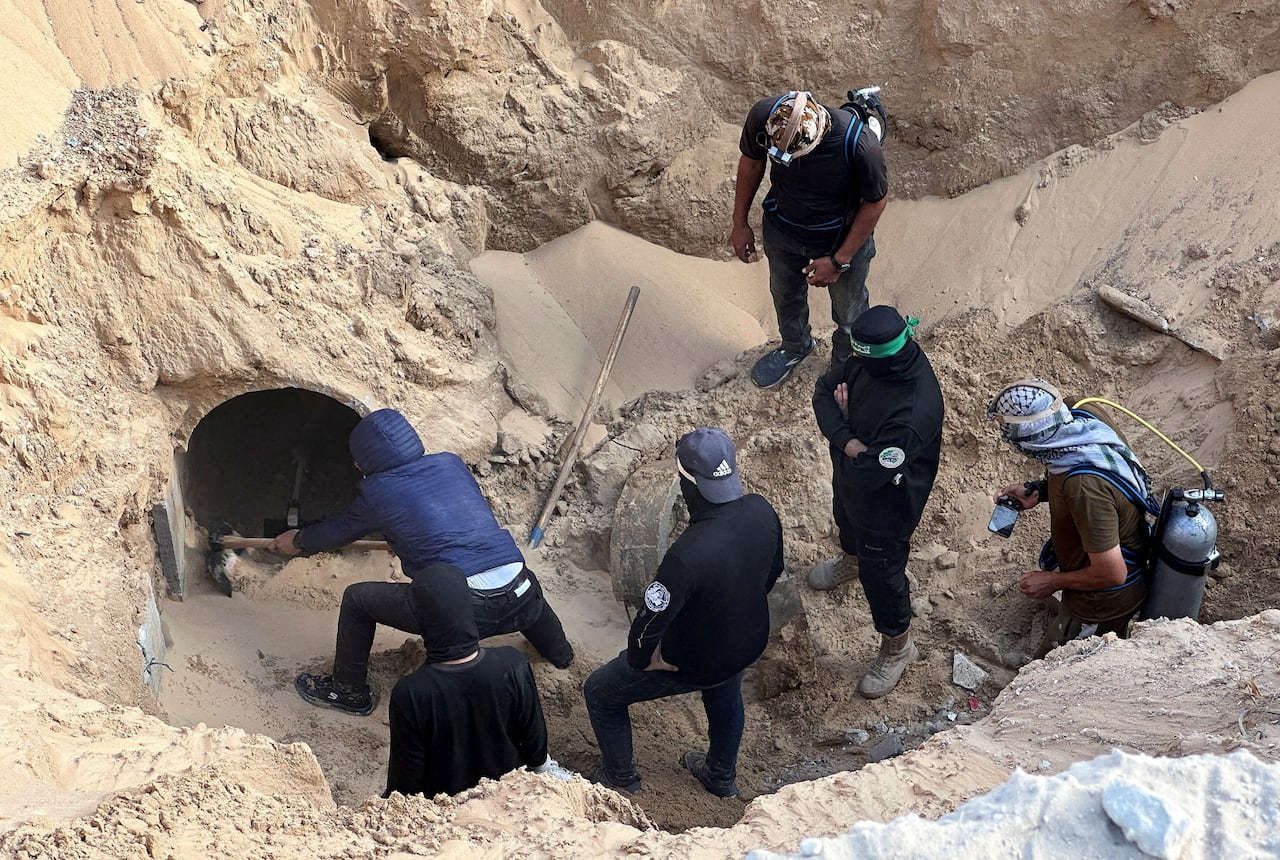 Hamas militants search for the bodies of deceased Israeli hostages on Tuesday in Khan Younis. (Haseeb Alwazeer /Reuters)Necessary strategy, says Israel
Hamas militants search for the bodies of deceased Israeli hostages on Tuesday in Khan Younis. (Haseeb Alwazeer /Reuters)Necessary strategy, says IsraelIsrael has long defended the practice as a product of its location in a hostile neighbourhood.
Avi Kalo is a former head of an Israeli military intelligence unit charged with recovering those missing in action.
He says treating the dead of Israel’s enemies as assets is a necessity, especially in a country where part of the national security ethos is to leave no soldier or citizen behind.
“Which is, I understand, totally, extremely complicated for a Western democracy to use those tools,” he said. “But in [asking] how do we build those tools that can serve us to bring our loved ones back home, that would be a genuine tool.”
He points to the exchange in 1998 of the remains of 40 Hezbollah fighters from Lebanon, including the son of the militant group’s leader Hassan Nasrallah.
“We had the leverage to bring our special operation soldiers that got killed during an operation in Lebanon in return.”
Kalo says the Israeli military keeps careful track of where the bodies are buried.
“I can say from my personal testimony, and I’ve seen it in my own eyes, I would say 95 [to 100] per cent of the bodies are identified and buried in a very segmented area and we know where to approach and how to [retrieve them].”
WATCH | Bodies of Palestinians returned with numbers but no names:The Gaza Health Ministry said Thursday that Israel had released 30 bodies of Palestinians killed during the war, taking the total of bodies it has received since Monday to 120. Forensic experts in Gaza are working to identify the bodies, some of which they say show signs of physical abuse.Collective punishment, say PalestiniansPalestinians living under occupation call the practice a tool of oppression and collective punishment.
“It is a policy they have implemented against us for a long time,” said Hussein Shejaeya. “They want to be in control of the living and the dead.”
“The Israeli occupation does not differentiate between political factions. Or between ages or acts of resistance. They can sometimes keep a body of a child who has thrown a stone as easily as they would keep the body of [a] man who killed an Israeli.”
In the neighbourhood of Jabel Mukaber in occupied East Jerusalem the family of 14-year-old Wadee Shadi Elayan still keeps a house of mourning even though the teenager was killed 18 months ago.
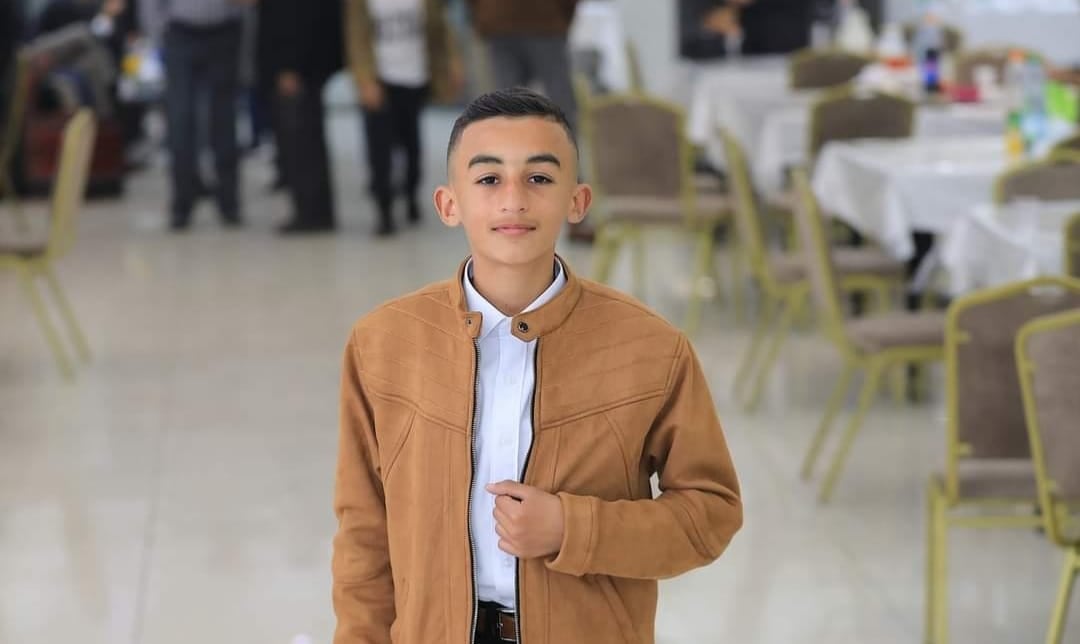 Wadee Shadi Elayan was 14 when he was shot in the back by Israeli border police after a failed stabbing attack on one of the policemen. (Submitted by Elayan family)
Wadee Shadi Elayan was 14 when he was shot in the back by Israeli border police after a failed stabbing attack on one of the policemen. (Submitted by Elayan family)He was shot in the back by Israeli border police while running away after a failed stabbing attack on one of the policemen near an Israeli settlement outside Jerusalem.
There is video showing his approach, the failed attack and of him being shot dead.
“They never allowed us to see his body,” said his mother, Linda. “And since he’s been martyred we have been trying through the legal system to retrieve it.”
Nareman Shehadeh Zoabi, a Palestinian Israeli civil rights lawyer who acted for the family, says the facts that Elayan was a minor and hadn’t succeeded in the attack were not taken into consideration by the court which said it had secret evidence against him.
Zoabi works with Adalah, a non-profit legal advocacy centre for Arab minority rights in Israel based in Haifa.
She says Israel has shifted the criteria of whose bodies can be held over the years, broadening it out from those accused of affiliation with Hamas to include other groups.
Since the Oct. 7 attacks, Palestinian citizens of Israel accused of terrorism have also been added to the list, not just Palestinians living in the Occupied Territories.
“And regardless of the consequences of the event,” the lawyer adds, “he now does not have to kill someone in order for his body to be held. It’s enough that he tried to do something.”
Zoabi’s fight for the Elayan family has now shifted to how and where their son’s body will be kept, to allow for appeals.
Even though his body, and those buried in what are called cemeteries of numbers aren’t a part of the current exchange happening in Gaza, it had still raised his mother’s hope that she might be able to bury her son herself.
“So I can visit him and pray and talk to him,” she said. “This will be more comforting for him and for me.”


